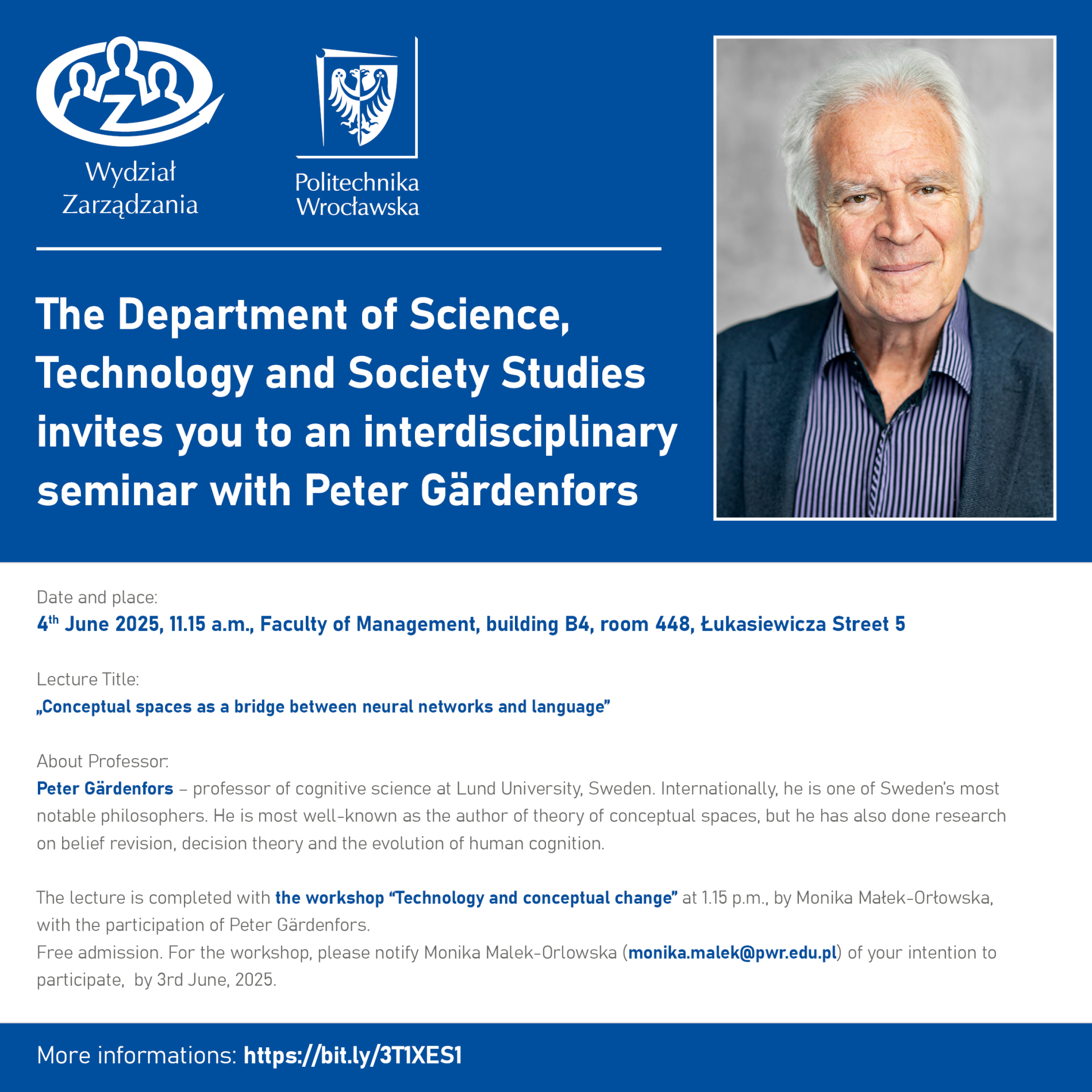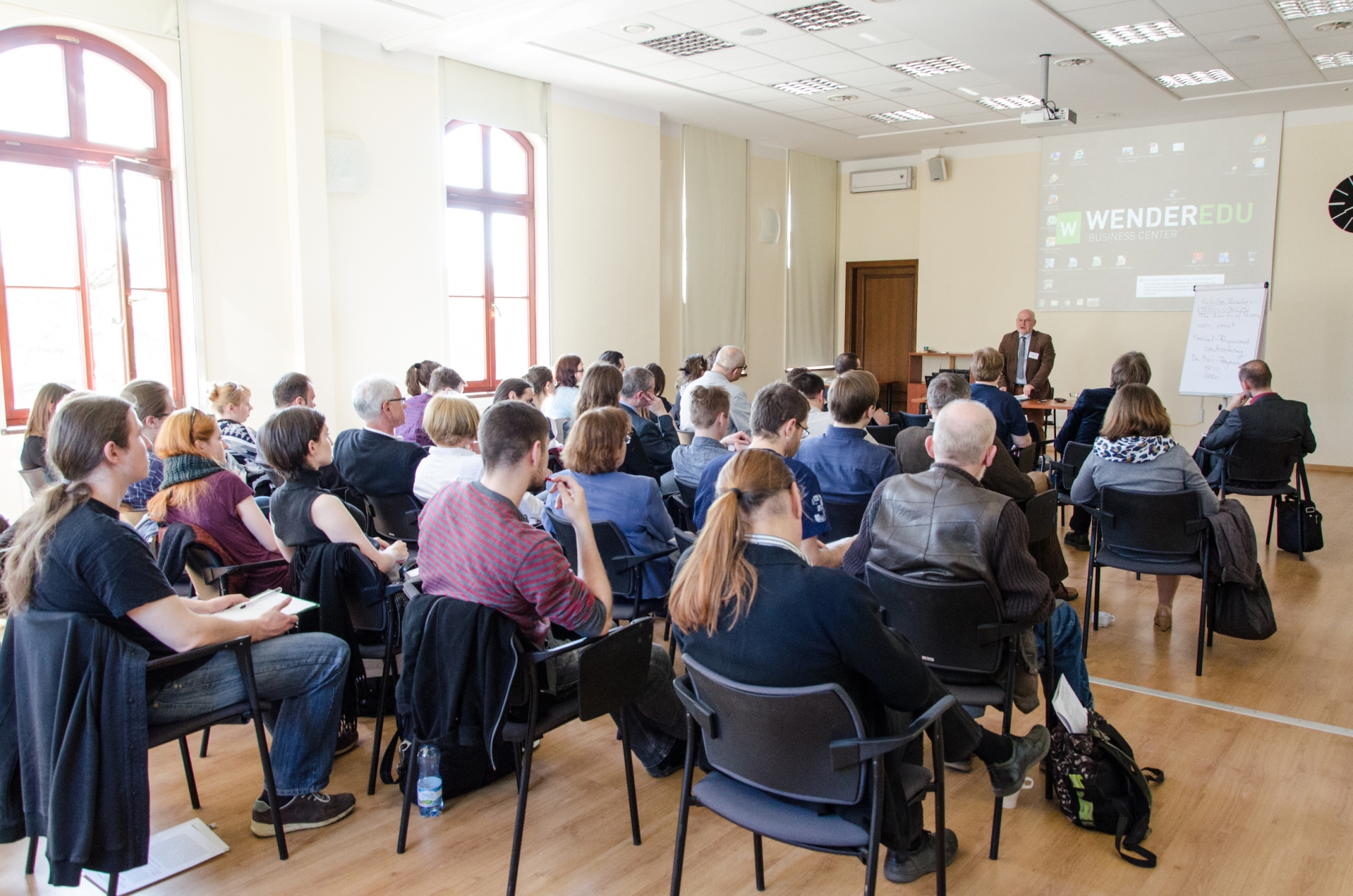
The Department of Science, Technology and Society Studies invites you to an interdisciplinary seminar with Peter Gärdenfors
When: 4th June 2025
Who: Peter Gärdenfors is professor of cognitive science at Lund University, Sweden. Internationally, he is one of Sweden’s most notable philosophers. He is most well-known as the author of theory of conceptual spaces, but he has also done research on belief revision, decision theory and the evolution of human cognition. He authored over 400 publications, among them Knowledge in Flux (MIT Press 1988), Conceptual Spaces (MIT Press 2000) and Geometry of Meaning (MIT Press 2014).
What: lecture ”Conceptual spaces as a bridge between neural networks and language” , at 11.15 a.m.
Abstract:
In computer science as well as in philosophy and cognitive science, the question of how knowledge can be represented is central. The two main traditions have been symbolic representations that dominated early AI and connectionism that is currently dominating in AI. In addition to these traditions. I propose a geometric form that I call conceptual spaces. I will argue that conceptual spaces are suited for representing conceptual structures and conceptual learning, and also metaphorical and analogically reasoning. Some remarks on the relevance of conceptual space for current AI will also be made.
The lecture is completed with the workshop “Technology and conceptual change” at 1.15 p.m. , by Monika Małek-Orłowska, with the participation Peter Gärdenfors.
Abstract:
What is the meaning of “agency” and “decision” in case of autonomous systems? The workshop focus on this and other questions associated with socially disruptive technologies. Based on practical examples the participants will identify, analyze, and discuss disruptions of specific technologies. The underlying question is how disruptiveness of a technology relates to conceptual changes. We try to link social disruptions to the properties on the conceptual level.
Where: Faculty of Management, building B4, room 448, Łukasiewicza Street 5
Free admission. For the workshop, please notify Monika Malek-Orlowska (monika.malek@pwr.edu.pl) of your intention to participate, by 3rd June, 2025.
We cordially invite you to join us on Wednesday 4th June!

